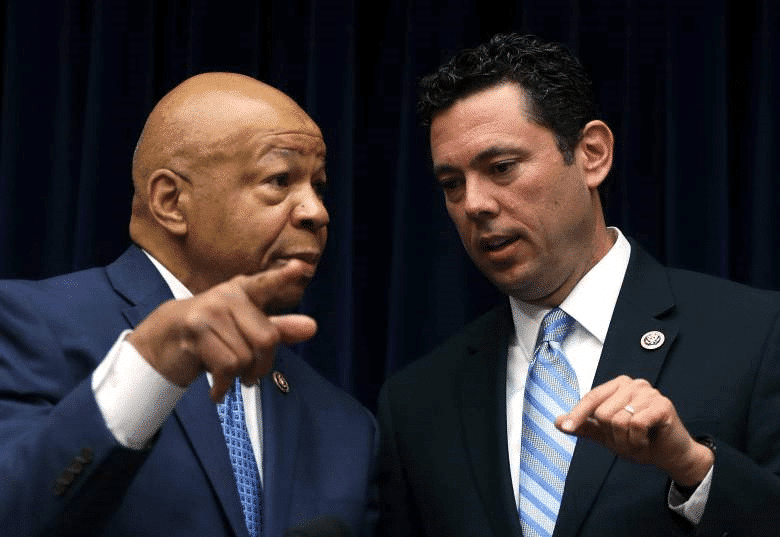
Reps. Elijah Cummings (D-MD) and Jason Chaffetz (R-UT)
Legislation has been introduced in the House to make a number of reforms to the Postal Service. The Postal Service Reform Act of 2017 (H.R. 756) would make pension funding reforms, allow for postal rate increases and even allow the Postal Service to provide non-postal services in some cases. The bill is being introduced by Congressman Jason Chaffetz (R-UT) and is co-sponsored by Reps. Elijah Cummings (D-MD), Mark Meadows (R-NC), Dennis Ross (R-FL), Gerry Connolly (D-VA), and Stephen Lynch (D-MA).
With regards to reforming the Postal Service’s pension program, the bill would do the following:
- Calculates the Postal Service’s pension costs and liabilities using the salary growth and demographic assumptions that are specific to the Postal Service population instead of the government-wide population, as in current law.
- Any surplus within the Postal Service’s Civil Service Retirement System or Federal Employees Retirement System accounts must be amortized over 30 years and returned to the Postal Service.
The bill also addresses health benefits of current and retired Postal workers:
- Establishes separately rated postal plans within the Federal Employees Health Benefits Program (FEHBP) beginning in January 2019.
- FEHBP carriers currently insuring at least 1,500 postal employees and retirees, as well as any other carriers may offer postal plans.
- Almost all postal employees and retirees who elect coverage through FEHBP must enroll in one of the postal FEHBP plans.
- Medicare eligible Postal Service retirees and family members are automatically enrolled in Medicare Part A and B.
- The Postal Service will cover a decreasing portion of the Medicare Part B premium for current retirees transitioned into Medicare as a result of the legislation over a 4-year transition period: 75% in the first year; 50% in the second year; 25% in the third year; and 0% in the fourth year.
- Requires the Postal Service to make actuarially-based Retiree Health Benefit (RHB) prefunding payments to cover 100% of the cost of the Postal Service’s RHB liability within 40 years.
- Addresses the prefunding schedule established in the Postal Accountability and Enhancement Act of 2006.
Source / More: Legislation Introduced to Reform Postal Employees’ Benefits : FedSmith.com

Union and NAME of Local/Branch
APWU - Auburn WA Local
Office held, if any
Retired President
The Postal Service Reform Act of 2017 would require postal retirees and their spouses living abroad to pay Medicare Part B premiums, although they would get nothing in return. How does that benefit the Postal Service or the retiree and spouse? Medicare covers no medical services outside the United States.